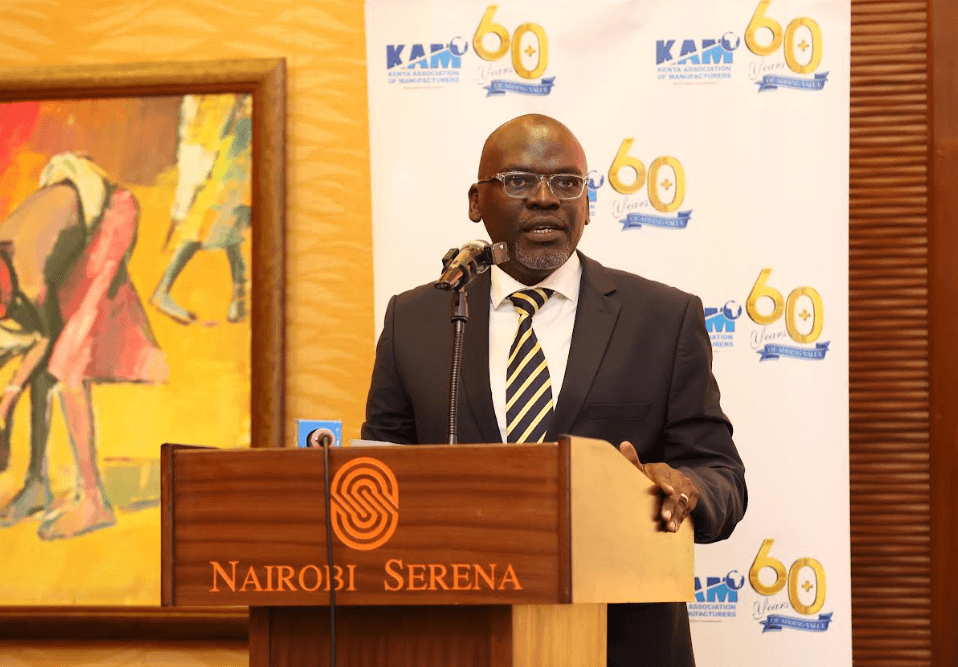Six years ago, Hellen Kerubo, then 65, was seated on a bench in a church meeting at Riombati village in Nyamira county when she suddenly collapsed.
Luckily, Daniel Okari, her only son, was there, and he quickly took his mother to the hospital. She would later be diagnosed with hypertension.
The news hit Kerubo's children with shock and disbelief. Their mother, whom they said looked young and energetic, had been healthy all along.
Out of denial, they took her to several health facilities, from clinics and consultant doctors in private practice to subcounty hospitals.
"At first, there were no traces of hypertension in my mother," said Daniel Okari, her 43-year-old son, when the Star visited the family.
"However, as we moved from one hospital to another, she was scanned and the doctor told us that mum had high blood pressure."
Five years later, after oscillating between mild, sick and well, Kerubo’s situation worsened. Her daughter Patricia said several times, villagers spread rumours that her mother was dead.
"I have been called even in the middle of the night to go see her when her condition got worse," Patricia said.
But Patricia, who is married about 20km away, could only arrive at daybreak due to the fear of the night and poor road network.
"When I got there, I found my other sisters, friends and relatives had arrived," she said.
"My mother used to smell awful. More often than not, her tongue would be bleeding because she would bite it during her convulsions."
We were convinced that it was witchcraft. I'm not rich enough to afford the junk foods that I hear bring such lifestyle diseases, nor has anyone in our family ever had such a disease
WITCHCRAFT CLAIMS
Early last year, Kerubo’s children decided to take her treatment seriously after they realised that her condition would never improve.
Looking back, Kerubo says the family was traumatised.
"We were convinced that it was witchcraft. I'm not rich enough to afford the junk foods that I hear bring such lifestyle diseases, nor has anyone in our family ever had such a disease," Kerubo said.
"Besides, I'm told my convulsions were so scary that we all believed the disease was out of sorcery."
So last May, the children decided to sell some of their mother's land to take her to hospital, where a private doctor scanned her again and put her under medication.
“I was given many tablets to take, which I did. I got better for about a month and the disease recurred, now worse than before," she said.
It is at that point that some of her children and relatives advised her to try traditional healing. That necessitated the selling of a cow to raise the healing fee.
Some of the children were opposed to going the traditional healing route, saying it would be expensive and ineffective. But the ones who were for it had their way.
"Since then, I have not recovered fully yet, as the disease does come up once in a while. I now have my grandchildren to sleep around me at night and watch over me, just in case I get worse," she said.
Due to the lack of consensus on the type of treatment to offer their mother, the siblings have since gone separate ways, not visiting her as much as they used to at first, she said.
DOUBLE TROUBLE
Elsewhere, several kilometres away in Riamachana village, Masaba North subcounty, one Mong'ayo Oiro, 59, has been nursing hypertension and diabetes since 1997.
He said the two diseases have taken a good chunk of his resources, but at least he's grateful for being alive and vibrant, 25 years after diagnosis.
"I had been feeling unwell for quite some time and I decided to visit Ram Hospital in Kisii for a scan," Oiro said.
At the hospital, he was diagnosed with high blood pressure and diabetes at the same time. He said the news shocked him as he was quite young to get such diseases, but he learned to be positive with the help of doctors.
"The doctors took me through counselling. They told me I had a chance to live for as many as a hundred years. I'm here as a testament to their promise. I'm almost 60 and very strong," he said.
He has since then been on medication every day. He was also advised to take a special diet as a way of managing the disease.
"I spend at least Sh3,000 a month on drugs. I take them three times a day. It's them that have kept me this strong," he said.
"I also eat special foods. For example, I eat ugali from finger millet grains and traditional vegetables such as Jew’s mallow (mrenda), spider plant (saga), African nightshade (managu) and others," he added.
"Occasionally I carry packed food whenever I'm going far. I can't eat food in restaurants anyhow."
He eats four times a day: in the morning, at midday at lunchtime, and at supper. The only food he can eat in restaurants, he said, is githeri, and even that sometimes goes bad on him. He also uses honey for sugar in his drinks.
His associates have told him several times that his diseases could be a result of witchcraft, but he has always rebuffed such assertions.
"I got these diseases when I was poor. In fact, I have only progressed as I manage the diseases, recently and over time.”
He bought a self-monitoring machine for Sh3,000 in 1997. He said it has been so helpful in managing the diseases as he can monitor his sugar and pressure levels and thus seek medical attention in time.
"With these diseases, I have also learnt to practise self-discipline over my emotions. Sometimes people shout at me but I always calm myself down. I can walk away and have some nature walk until the pain abates. Otherwise, I can get sick so fast," he said.
SEARCH FOR ANSWERS
Esther Kemunto, 72, lives in the village next to Oiro's. She has almost similar conditions to Oiro but says hers could be more manageable or even healed if she could afford to go to a proper hospital.
She has hypertension, too, dating back to her teen years. She was diagnosed with the disease at Kendu Adventists Hospital when she was a young woman. It has been on and off, but in the last decade, it got worse until she had to live on painkillers.
"Ever since I came back from Kendu Adventist Hospital, I have never been properly tested again," she said.
"But I get so sick sometimes that I decided to live on painkillers. I spend Sh2,000 a month on them. Sometimes I lack the money to buy them and I get worse. It's not an easy thing to manage."
She was advised to ditch some types of foods, but she does eat them sometimes because the ones she was told to eat are too expensive for her. The painkillers at some point affect her adversely and she vomits blood.
Like Kerubo, she has tried both medical treatment and traditional healing, and even herbs. None has worked entirely, and she resorted to painkillers, she said.
Dr Irene Njeri, a consultant physician at Kiambu Level 5 Hospital, said hypertension and diabetes are normal diseases, which are caused by several risk factors. She ruled out witchcraft.
"Hypertension can be caused by modifiable and non-modifiable factors. Both factors are very natural," she said.
"Modifiable factors are those factors which can be changed, such as weight and cholesterol levels. On the other hand, non-modifiable are those factors which can't be controlled, such as age and race."

















